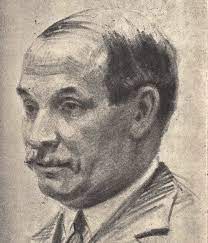Simiand, François

Bio: (1872-1935) French sociologist, economist, and historian. François Simiand graduated in philosophy from the École normale supérieure, and later became one of the most important collaborators of Durkheim, in whose magazine L'Année Sociologique he ran a column on economic sociology. In the article "Historical Method and Social Sciences" (in French 1903), Simiand recommends that historians should break with their obsession over political and chronological data, and begin to develop a "difficult history", that would shed light on which patterns in history are constant and which patterns are repeating. In his book The Positive Method in Economy (1912), Simiand presents a theory of "collective preferences" that opposes classical economic analysis.
Simiand's greatest contribution to the science of economics is his theory of long economic cycles, which is presented in the book Wages, Social Development and Money (1932). After extensive historical research on prices, wages, economic productivity, and other economic parameters, Simiand concluded that there are two main economic cycles - the cycle of general economic expansion and the cycle of economic decline. He criticizes the classical economy, according to which there can be a static state of the economy. Economic cycles are influenced by many factors, of which socio-psychological ones are also important, such as people's trust in the economy. By studying the previous economic cycles and the factors that caused them, and reacting to changes promptly, it is possible to reduce the negative effects of these cycles. Simiand's theory of economic cycles has similarities with Nikolai Kondratieff's theory of the long cycles in the development of capitalism, but both theories emerged independently of each other.
Theoretical approaches
Durkheimian SchoolMain works
„Méthode historique et Science social”, in Revue de synthèse historique (1903);
La méthode positive en science économique (1912); 2018
Le Salaire, l'évolution sociale et la monnaie, essai de théorie expérimental du salaire, 3 vol. (1932);
Les Fluctuations économiques à longue période et la crise mondiale (1933);
Inflation et stabilisation alternées: le développement économique des États-Unis (1934);
De l'échange primitif à l'économie complexe (1935);
Statistique et Exprience: Remarques de Methode (2016);
Notes Critiques, Sciences Sociales: Bulletin Bibliographique (2018);
Le Salaire Des Ouvriers Des Mines de Charbon En France: Contribution À La Théorie Économique Du Salaire (2018).

